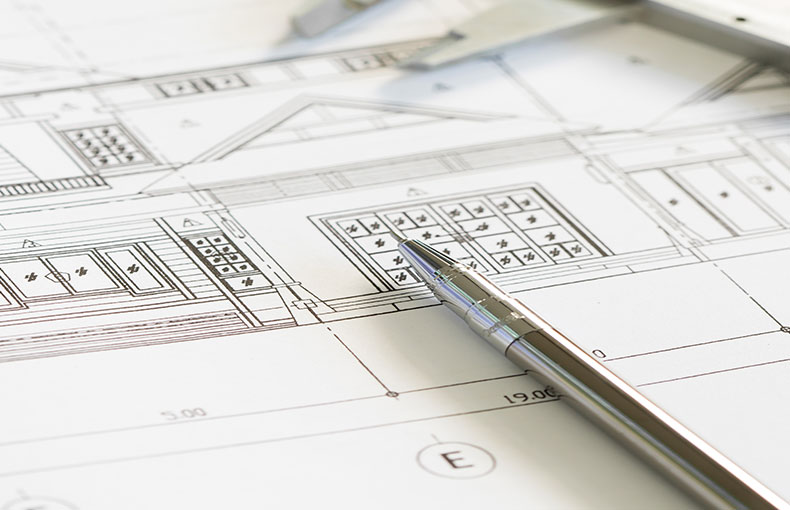Introduction to construction planning and scheduling
Construction planning and scheduling play vital roles in bringing together all the different activities and stages of a construction project, ensuring that it is completed within the designated budget and timeframe. While they each serve distinct purposes, planning and scheduling are closely interconnected and crucial for effective project management.
Construction planning involves selecting appropriate policies, procedures, and processes to accomplish the objectives of your project. Construction scheduling then adjusts your project’s action plans for scope, time, cost, and quality to create a functional calendar. It is crucial for your project team to adapt the project specifications, such as resource requirements, communication methods, risks, and procurement, into an operational workflow system.
Your project plan and budget, along with your schedule, are essential tools for managing your projects. In addition, an integrated or coordinated cost-time schedule serves as the basis for monitoring and controlling activities throughout the life cycle of your project.
The significance of construction planning and scheduling
Having a well-thought-out construction plan and schedule is crucial to ensure that your construction project is finished within the allocated time and budget. A comprehensive construction schedule not only determines the speed at which work is carried out but also specifies how the work is to be completed. Additionally, it aids in defining the procedures, techniques, and order in which materials are to be installed.
Making careful and early preparations of your construction schedule greatly enhances your effectiveness and output. Having a well-planned construction schedule enables you to easily coordinate and guarantee the appropriate use of materials for each task, thus enhancing quality control measures.
Procuring materials and resources is proceeding smoothly as you are able to refer to your schedule in order to acquire the necessary materials at the precise time they are required. By utilizing your schedule, you are enhancing safety performance by keeping track of which workers are present on-site and ensuring that the designated safety measures are effectively adhered to.
A dependable construction schedule enables you to effectively manage your time with all the parties involved in your project, enabling better planning for their activities. By gaining complete control over your project, you can avoid unexpected problems and prevent both excessive expenses and delays.
What is construction planning?
Effective construction planning is crucial for effectively managing and carrying out construction projects. This includes making decisions on technology, determining the specific tasks to be completed, estimating the necessary resources and the scope of each task, and identifying potential connections and workflows between different activities.
In construction management, establishing a well-organized construction plan plays a vital role in determining both the budget and timeline for the entire project. The process of formulating and advancing this plan is both arduous and crucial.
In addition to the technical aspects, it is also necessary to make organizational choices regarding the interactions between project stakeholders and subcontractors that need to be involved.
However, it is not sufficient to simply monitor and utilize construction data for one specific project. Developers in the real estate industry, in particular, can greatly profit from storing their data over an extended period. An excellent justification for maintaining commercial real estate data, also known as CRE data, is that it enhances the ability to make informed decisions.
The Constructor, an informational website for civil engineering, states that there are three primary forms of construction project planning.
1. Strategic planning
The process includes choosing the main objectives of the project at a corporate level. The task of strategic planning is typically carried out by the corporate planners of the project owner. Their aim is to determine the specific project to be constructed and establish the deadline for completion. The project teams then create a comprehensive construction execution plan, which aligns with the strategic and contracting plans already set by the corporate planners, in order to achieve the project goals of the owner.
2. Operational planning
The construction teams must engage in thorough planning to achieve the strategic goals of the project. Prior to creating the construction schedule, the project teams need to address a set of inquiries in order to develop the construction master plan.
- Is the operational plan expected to be completed by the strategic planning target date?
- Does the company have enough construction resources and services to achieve the project goals?
- How does the new project affect the current amount of work?
- From where will we obtain the necessary resources to manage an excess of workload?
- Which company policies could impede the plan from achieving its desired completion date?
- Does the transportation of equipment or materials typically require a significant amount of time?
- Do the project ideas and designs have a solid foundation and are they prepared to begin the construction process?
- Is the initial agreement still applicable as planned?
- Is it more cost-effective to utilize a fast-track scheduling method?
3. Scheduling
This includes a comprehensive operational plan that is organized according to strategic objectives and specified time frames.
What are the different stages or steps involved in construction?
Construction planning and scheduling are crucial throughout five key stages of a typical construction project.
- The first stage is initiation, where the feasibility of your project idea is assessed and a decision is made on whether to pursue it. During this phase, the project’s goals and objectives are determined and outlined.
- The planning stage involves expanding on the project and delineating the specific requirements necessary to achieve the project objectives. During this stage, you identify all the necessary tasks, resources, and strategies to ensure successful completion. Typically, the project manager creates a budget that estimates costs for labor, equipment, and materials. Once all planning details are decided upon, they should be documented in a comprehensive plan that includes targets, quality assurance measures, control measures, building codes, and customer criteria. At this point, the project is prepared for implementation.
- The implementation phase, known as execution, is where the project plan is carried out at the specified location. It is crucial to have project control and communication during this phase. The project manager plays a significant role in directing the project’s progress through progress reports and measuring activity performance. Any deviations from the plan should be identified and rectified. The main objective is to stick to the original plan, which is why timely reporting of progress is important.
- The monitoring stage takes place at the same time as the execution stage and involves measuring progress and performance in order to track and ensure that the project is following the construction plan and schedule.
- When all components of the project have been completed and the client has given their approval, the project can now be closed. This stage entails all actions necessary for the final transfer of the project to the customer.
Conclusion
In order to achieve success in your construction endeavors, it is crucial to engage in meticulous planning. This involves developing a well-structured timeline that ensures your projects are completed within the designated timeframe and budget. While construction planning and scheduling may require significant time and effort, the efficiency and productivity gained during the actual construction process will far outweigh the initial investment of time.




